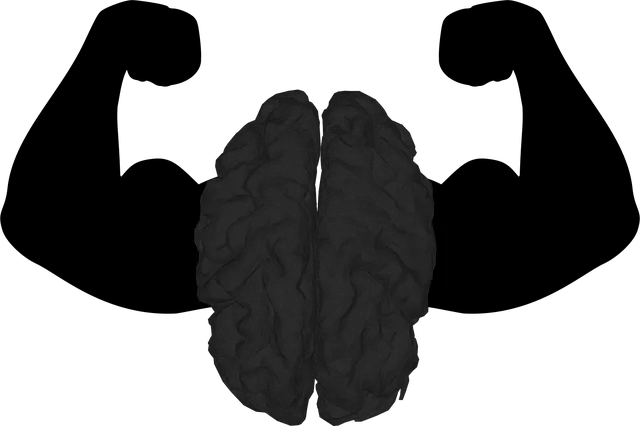Kaiser's inpatient mental health program in Lone Tree focuses on teaching powerful emotion regulation techniques, enhancing patient care. Through evidence-based practices like Mindfulness Meditation and CBT, combined with coaching and group discussions, individuals gain emotional intelligence tools to manage stress, anxiety, and negative thought patterns. These skills, tailored through cultural competency training, improve self-esteem, boost well-being, and foster resilience for effective mental health support.
Emotion regulation techniques are vital tools in navigating life’s challenges, especially in the context of mental health. This article explores the significance of emotion regulation and offers a comprehensive guide through the lens of the Kaiser Inpatient Mental Health Program in Lone Tree. We delve into effective techniques, providing valuable strategies for personal growth. From understanding emotional responses to implementing sustained skills, this resource equips readers with the knowledge to manage their emotions and enhance overall well-being.
- Understanding Emotion Regulation: Unraveling the Concept and Its Significance
- The Kaiser Inpatient Mental Health Program: A Comprehensive Approach to Learning
- Techniques for Effective Emotion Regulation: Tools and Strategies
- Implementing and Sustaining Skills: Tips for Teaching and Personal Growth
Understanding Emotion Regulation: Unraveling the Concept and Its Significance

Emotion regulation is a vital skill that empowers individuals to manage and understand their feelings effectively. It involves recognizing, accepting, and controlling emotions in response to various situations, ensuring they don’t overwhelm or hinder one’s ability to make rational decisions. This concept is especially crucial for those seeking mental health support, such as those visiting the inpatient facility at Kaiser Lone Tree. Here, healthcare providers play a pivotal role by teaching these techniques, enhancing patient care and outcomes.
Understanding emotion regulation is essential, particularly in today’s fast-paced world where stress and anxiety are prevalent. The ability to navigate emotions can significantly impact overall well-being and mental health. Cultural competency training for healthcare professionals is a game-changer in this context, ensuring they can offer tailored support to diverse populations. By incorporating self-esteem improvement strategies and conducting thorough risk assessments, mental health professionals can help individuals develop resilience and cope with challenging emotions, ultimately improving their quality of life.
The Kaiser Inpatient Mental Health Program: A Comprehensive Approach to Learning

The Kaiser Inpatient Mental Health Program offers a comprehensive approach to learning and mastering emotion regulation techniques. Located in Lone Tree, this program is designed to provide intensive care and support for individuals dealing with various mental health challenges. Through a multifaceted curriculum, patients engage in a blend of evidence-based practices such as Mindfulness Meditation, Compassion Cultivation Practices, and Emotional Intelligence training. These techniques empower individuals to navigate and manage their emotions effectively, fostering resilience and promoting overall well-being.
The program’s focus on holistic healing extends beyond traditional therapy sessions. It incorporates group discussions, individual coaching, and experiential exercises that encourage self-awareness and emotional expression. By embracing these diverse learning methods, patients gain valuable skills that extend far beyond the inpatient setting, enabling them to thrive in their daily lives with enhanced emotional intelligence and improved coping mechanisms.
Techniques for Effective Emotion Regulation: Tools and Strategies

Emotion regulation techniques are a powerful tool for managing mental health, and Kaiser’s inpatient mental health services in Lone Tree offer valuable resources for those seeking support. These techniques provide individuals with strategies to understand and control their emotions, fostering better mental wellness. One effective approach is mindfulness training, which encourages individuals to focus on the present moment, accepting feelings without judgment. This practice can significantly reduce stress and anxiety by promoting a calm and composed state of mind.
Additionally, cognitive-behavioral therapy (CBT) techniques are widely recognized for their effectiveness in managing emotions. CBT helps individuals identify and challenge negative thought patterns, replacing them with more positive and realistic ones. By learning to reframe emotional triggers, people can develop healthier coping mechanisms. Stress Management Workshops organized by various mental wellness podcast series production companies often incorporate CBT principles, empowering individuals to take charge of their emotional well-being. Inner strength development is another crucial aspect, where individuals learn to tap into their innate resilience and confidence, enabling them to navigate challenging situations with greater ease.
Implementing and Sustaining Skills: Tips for Teaching and Personal Growth

Implementing and sustaining emotional regulation skills is a crucial aspect of teaching and personal growth, especially when considering the wide-ranging impact on mental wellness. At Kaiser’s inpatient mental health facility in Lone Tree, for instance, therapists often emphasize Mind Over Matter principles to empower individuals in managing their emotions effectively. This involves breaking down complex techniques into actionable steps, ensuring learners understand how to apply them in daily life.
Regular practice and a supportive environment are key to retaining these skills. Mental wellness coaching programs can play a significant role here by offering structured development plans tailored to individual needs. By fostering a sense of accountability and providing ongoing guidance, these programs encourage the consistent application of mood management strategies, leading to lasting personal growth and improved mental health outcomes.
Emotion regulation is a vital skill that can significantly enhance overall well-being, making it a crucial aspect of mental health care. The Kaiser Inpatient Mental Health Program in Lone Tree offers a comprehensive approach to teaching these techniques, empowering individuals to navigate their emotions effectively. By combining evidence-based strategies and practical tools, the program fosters personal growth and resilience. Through dedicated practice and implementation, as highlighted in this article’s sections, one can master emotion regulation skills that will benefit them throughout their lives.






